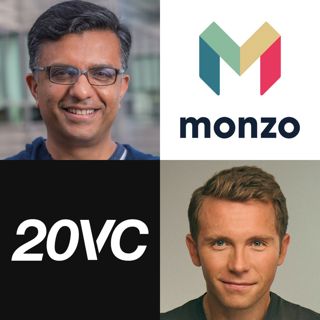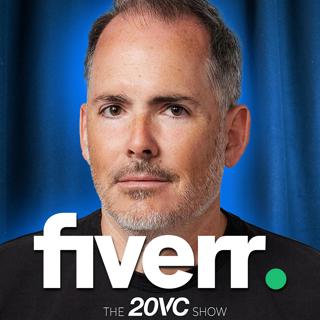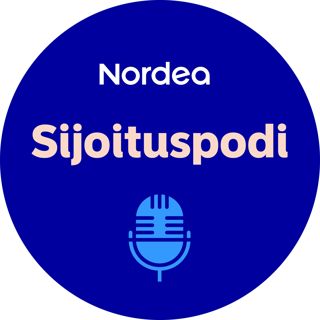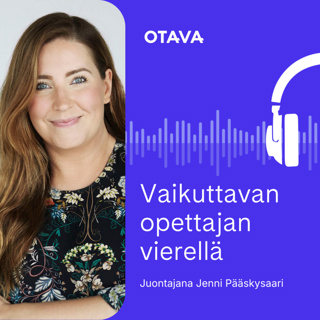
20Growth: Inside Ramp's Growth Engine: How Ramp Became the Fastest Growing SaaS Company Ever | What Worked & What Did Not Work | How to Hire for Growth | How to Find Alpha in Channels Where No One Else Can with George Bonaci
George Bonaci is the VP of Growth at Ramp, where he's helping one of the fastest-growing fintech companies scale even further. Prior to Ramp, George was VP of Growth at Gong. Before Gong, George was at Samsara where he helped grow revenue from $650M ARR, and played a pivotal role in the company's successful IPO. In Today's Growth Masterclass We Discuss: 03:57 How the Best Growth Teams Experiment 05:10 How to Allocate Bets and Resources for Growth 07:09 Velocity vs. Quality in Growth 15:05 The Role of Postmortems and How to Do Them 19:16 Growth Team Structure and Standalone or Not? 20:01 The Three Ways to Find Alpha in Growth 30:01 How to Hire for the Best Growth Hires 31:30 How to do Take-Home Assignments When Hiring for Growth 32:51 Common Pitfalls in Hiring Growth Talent 34:16 Investing in Management and Learning 42:43 How AI Changes Growth Products and Strategies 46:43 Quick Fire Round: Common Mistakes and Growth Channels
28 Helmi 202555min

20VC: The Insane Story of Glovo: Selling 30% of the Company for €100K | The McDonalds Deal That Saved Them | Running out of Money Three Times | Burning $1M Per Day | Being Acquired for $2.2BN with Oscar Pierre, Founder @ Glovo
Oscar Pierre is the Founder and CEO @ Glovo, the food delivery site that will get you anything you want to your doorstep. This story is insane, the company was started by Oscar 11 years ago, in their pre-seed round they sold ⅓ of the company for €100K. The company was later saved by a deal they made with McDonald's. The company nearly ran out of money on several occasions, one time the funding round came from the CEO of Rakuten who Oscar met an FC Barcelona drinks. Today, they are a part of DeliveryHero who acquired them for $2.2BN, they have delivered 1BN orders and have almost 60M customers. In Today's Episode We Discuss: 04:27 Starting with Nothing 07:30 The First Funding Round: Selling ⅓ of the Company for €100K 09:23 Marketplace Dynamics and Expansion 15:34 The McDonald's Deal That Saved the Company 18:38 Running out of Money Three Times: Fundraising Hell 25:57 International Expansion: What Worked 29:25 Lessons from Failures: What Brazil Taught Us 31:36 How to Win in Emerging Markets 32:02 The Burn Rate (Burning $1M per day) and Investor Concerns 33:29 Scaling Challenges and Competitor Threats 34:29 The Biggest BS Elements of Company Values 35:40 How I Ruined the Culture of the Company 41:14 Layoffs and Talent Management 42:06 Biggest Lessons from M&A 44:41 The Future of Quick Commerce 45:38 Acquisition by Delivery Hero 48:56 Post-Acquisition Reflections 54:47 The CEO on Trial and Facing Prison
26 Helmi 20251h 7min

20VC: Why Google Will Win the AI Arms Race & OpenAI Will Not | NVIDIA vs AMD: Who Wins and Why | The Future of Inference vs Training | The Economics of Compute & Why To Win You Must Have Product, Data & Compute with Steeve Morin @ ZML
Steeve Morin is the Founder & CEO @ ZML, a next-generation inference engine enabling peak performance on a wide range of chips. Prior to founding ZML, Steeve was the VP Engineering at Zenly for 7 years leading eng to millions of users and an acquisition by Snap. In Today's Episode We Discuss: 04:17 How Will Inference Change and Evolve Over the Next 5 Years 09:17 Challenges and Innovations in AI Hardware 15:38 The Economics of AI Compute 18:01 Training vs. Inference: Infrastructure Needs 25:08 The Future of AI Chips and Market Dynamics 34:43 Nvidia's Market Position and Competitors 38:18 Challenges of Incremental Gains in the Market 39:12 The Zero Buy-In Strategy 39:34 Switching Between Compute Providers 40:40 The Importance of a Top-Down Strategy for Microsoft and Google 41:42 Microsoft's Strategy with AMD 45:50 Data Center Investments and Training 46:40 How to Succeed in AI: The Triangle of Products, Data, and Compute 48:25 Scaling Laws and Model Efficiency 49:52 Future of AI Models and Architectures 57:08 Retrieval Augmented Generation (RAG) 01:00:52 Why OpenAI's Position is Not as Strong as People Think 01:06:47 Challenges in AI Hardware Supply
24 Helmi 20251h 12min

20VC Exclusive: Mercor Raises $100M at a $2BN Valuation: Scaling to $70M in ARR in 24 Months | 9-9-6: 9AM-9PM - 6 Days Per Week: The Most Intense Culture in Silicon Valley | The Future of Programming, Models and Data with Adarsh Hiremath
Adarsh Hiremath is the Co-Founder and CTO @ Mercor, an AI recruitment platform and one of the fastest-growing companies in technology. They have scaled to $70M in ARR in just 24 months. They are famed for working 6 days per week, 9AM to 9PM. All of their founders are Thiel fellows, they are also the youngest unicorn founders ever with the fundraise announced today raising $100M led by Felicis at a $2BN valuation. In Today's Episode We Discuss: 04:36 How Debating Makes The Best Founders 06:05 Do People Treat You Differently When a Unicorn Founder 10:58 Scaling to $70M ARR in 24 Months 13:42 How Culture Breaks When Scaling So Fast 23:49 The Future of Foundation Models 24:05 OpenAI vs Anthropic 24:32 Data: Synthetic vs Human 27:10 The Future of Programming and AI 28:15 The Impact of AI Tools on Software Development 28:51 Why Software Will Become Commoditised 29:55 Network Effects and Marketplaces 33:13 Raising From Benchmark After a Helicopter Ride 37:30 Quickfire Round: Insights and Reflections
20 Helmi 202545min

20VC: NVIDIA vs Groq: The Future of Training vs Inference | Meta, Google, and Microsoft's Data Center Investments: Who Wins | Data, Compute, Models: The Core Bottlenecks in AI & Where Value Will Distribute with Jonathan Ross, Founder @ Groq
Jonathan Ross is the Founder & CEO of Groq, the creator of the world's first Language Processing Unit (LPUTM). Prior to Groq, Jonathan began what became Google's Tensor Processing Unit (TPU) as a 20% project where he designed and implemented the core elements of the first-generation TPU chip. Jonathan next joined Google X's Rapid Eval Team, the initial stage of the famed "Moonshots Factory", where he devised and incubated new Bets (Units) for Google's parent company, Alphabet. In Today's Episode We Discuss: 04:20 Interview with Jonathan Ross Begins 04:59 Scaling Laws and AI Model Training 06:22 Synthetic Data and Model Efficiency 12:01 Inference vs. Training Costs: Why NVIDIA Loses Inference 17:06 The Future of AI Inference: Efficiency and Cost 18:15 Chip Supply and Scaling Concerns 20:57 Energy Efficiency in AI Computation 25:40 Why Most Dollars Into Datacenters Will Be Lost 31:05 Meta, Google, and Microsoft's Data Center Investments 41:11 Distribution of Value in the AI Economy 42:10 Stages of Startup Success 43:17 The AI Investment Bubble 45:00 The Keynesian Beauty Contest in VC 48:40 NVIDIA's Role in the AI Ecosystem 53:39 China's AI Strategy and Global Implications 57:51 Europe's Potential in the AI Revolution 01:10:14 Future Predictions and AI's Impact on Society
17 Helmi 20251h 20min

20VC: From Penniless Printing Shop Offices to Public Company and One of the Largest Entertainment Companies: The Story of LADbible | The Future of Content & Social Media | US vs Europe: Is Europe F****** with Solly Solomou
Founder and CEO of LADbible Group, Solly Solomou has built one of the largest and most engaged digital media entertainment companies in the world. Under his leadership, LADbible has grown to reach two-thirds of 18-34-year-olds in the UK, with a global audience of over 494 million followers, including 141 million in the US. The company's content now has a total reach of over 1 billion people worldwide. In Today's Episode We Discuss: From Printer Shop Office to Ringing the IPO Bell: How did Solly start LADbible with no money and no experience? How did a moment with Kevin Hart and Ice Cube show Solly that he had something special with LADbible? In the expansion of the business, what new products did not work? What did Solly learn from the failures of products? Why did Solly always want to build the business without an external funding? What are the top 3 pieces of advice Solly gives to young entrepreneurs starting a business today? The Future of Content and Social Media: How does Solly see wearables changing the future of media and social? Does Solly agree that the friendship graph has been eradicated by interest graphs? Does Solly think TikTok should be banned? Why does Solly think TikTok Shop is the most interesting product in social today? Europe vs US: Is Europe F******: What are the single biggest differences between doing business in the US vs Europe? Why did Solly decide to go public in London on The London Stock Exchange? How tough is it being a public company in London? How important are local liquidity markets if Europe is to regain competitiveness? If Solly were advising Keir Starmer on how to stimulate growth in the UK, what would he say and advise?
14 Helmi 202559min

20VC: Monzo: The Greatest Turnaround in Tech: From £40M Revenues, Layoffs, Downrounds and Low Employee NPS to $1BN in Revenue, Profitable and 10M Customers with TS Anil, CEO @ Monzo
TS Anil is the CEO @ Monzo, where he has been the mastermind behind the greatest turnaround in tech in the last 10 years. When TS took over at Monzo they had £40M in revenue, very little runway, had a 40% down round and had large layoffs and low employee NPS. Today they are at £1BN in revenue, profitable and the UK's largest digital bank with more than 10m customers. From $40M Revenues to $1BN Revenues and Profitable: 1. What are the most profitable elements of Monzo's business today? How will that change in time? 2. What did TS do with Monzo that he wishes he had not done? What did he not do that he wishes he had done? 3. How does TS approach expansion? How will he win Europe against the competition of Revolut? 4. Why have no European fintechs won when expanding into the US? What do they do wrong? 5. How does TS think about the decision to go public? Will he go public in London? 6. How does TS respond to the notion that Monzo has a "work life balance" culture in the face of the fierce culture of Revolut? 7. What have been TS' biggest lessons from raising $1BN for Monzo from the largest institutions in the world? What was the easiest round? What was the hardest? 8. What three core traits does TS believe all great leaders need to have? If you do not have them, how can you develop them most efficiently?
13 Helmi 202556min

20VC: The $5BN Company Built from the Belgian Countryside | The Story of Odoo: The Company with No Plans to Sell, IPO & Their Billionaire Founder Who Does Not Care About Money with Fabien Pinckaers, Founder & CEO @ Odoo
Fabien Pinckaers is the Founder & CEO of Odoo, one of the most incredible businesses that you might not have heard of. Built from the countryside of Belgium, they do an astonishing $650M in ARR, they have over 5,000 employees and have over 50,000 companies as customers. Even better, Fabian openly does not ever want to sell the company, IPO, believes that titles in companies are total BS and most management is done completely wrong. In Today's Episode with Fabien We Discuss: 1. Everything You Know About Management is Wrong: Why is it BS to give people titles in a company? How does Odoo hire people after only one interview? Why does Odoo prefer to hire really young people under 30? Why does Fabien think it is the worst to build a team in Silicon Valley? 2. The Billionaire Who Does Not Care About Money: Why does Fabien literally not care about money and does not even own a house? Why does Fabien refuse to ever sell or IPO Odoo? How does Fabien plan to offer liquidity to investors if he never wants to sell or IPO? 3. Why Did Every VC Turn Down the $5BN Odoo: What are Fabien's biggest lessons from being rejected by every VC for Odoo? What did they not see that they should have seen? Why did Fabien always want the price of the company on every funding round to be as low as possible? How does Fabien advise founders on pitching VCs today, knowing all he knows? 4. Scaling to $650M in ARR: The Biggest Lessons: Why does Fabien believe the biggest mistake companies make is they lose focus? What did Fabien not do with Odoo that they should have done? What did Fabien do and invest in, that with the benefit of hindsight they should not have done? When did the business start to break with scale? What would Fabien have done differently knowing all he does know?
12 Helmi 20251h 15min






















